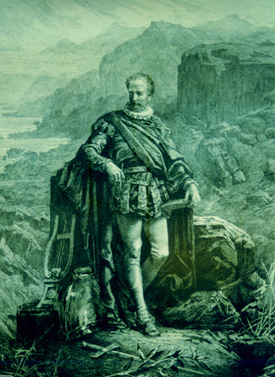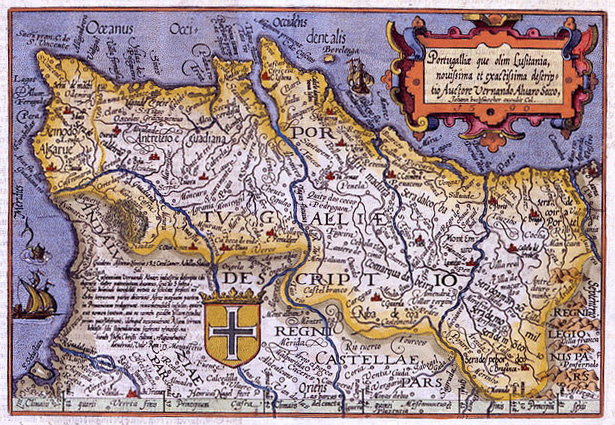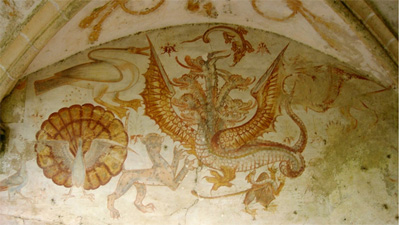Almost every great country has its collective attitude, which one might call its genius or spiritus loci. Sometimes you can catch it in a formula, sometimes it is more elusive, yet nonetheless it is indescribably present as a sort of atmosphere that permeates everything.
C. G. Jung; CW 10, par. 972
Introduction
Understanding the more profound and enduring expressions of a culture can potentially generate evolutionary shifts in the web of the world psyche, and in the individual psyche as well. Moreover, that understanding can be a “constellating factor,” bringing new growth and healing to the collective by offering an essential element in the chain of life that is primarily embodied by that culture.
To build on Jung’s idea referenced in the quote above, in addition to a country’s spiritus loci, every culture could also be said to have at least one dominant archetypal energy at its core which “permeates everything.” It can be sensed in the language; in the land; in the music; in the mythology; and in its past and current history. As such, each culture offers a special gift to the whole of human existence and to the evolution of humankind - a special gift that is offered by almost no other culture and which is often determined, in part, by the land itself.
The Naskapi Indians of the Labrador Peninsula, for example, live isolated lives in a vast subarctic landscape, one family or small group living great distances from any other. In their lifelong solitude the Naskapi hunters have no religious practices or rituals, with the exception of one: They believe they receive dreams from what they call the “friend,” a soul figure that dwells in the heart and is considered immortal. Their one act of devotion to the “friend” is to follow the directions given in dreams and to put them into material form by making images (art) of these dreams.
Dreams provide the Naskapi the ability to find their way in life, not only in the inner world, but in the outer world as well where dreams help them to hunt and otherwise survive. The Naskapi believe that dishonesty drives the “friend” away from the inner realms, whereas generosity and love of people and animals attract the “friend,” who in turn provides greater life through more and more helpful dreams.
One learns from the Naskapi that dream life in connection to image-making can be the foundation for one’s relation to the transpersonal and can further one’s development, both spiritual and material. Thus, by learning about the Naskapi culture we are introduced to an extraordinary way of being in relationship to soul life. We learn that even in almost total isolation, and through the simple act of image-making turned sacred, we can live a life of integrity, and in deep and intimate relationship to the Self. (C. G. Jung; Man and His Symbols; (MLVF); Double Day; pp. 161-2)
In relation to psychic health and survival, cultural diversity can be understood as sharing the same importance as bio-diversity. The more diverse we are as a species culturally, the more opportunities we have for understanding the depth and complexity of the human psyche and the richness of life that can follow as a result. We need cultural diversity as strongly as we need bio-diversity. The rise of fundamentalism and its paralytic consequences seem to be clear indicators of the perils of a mono-cultural world where “you are either with us or against us.” Here, there is no middle ground. No possibility for a diversity that sustains the complexity of life.
Lusitania
 Lusitania is the name of the pre-Roman tribe that inhabited most of what is now called Portugal. The name was later adopted by Luís Vaz de Camões (c. 1524–June 10, 1580) when writing about Portugal in his epic work, Os Lusíadas. Camões has been considered Portugal's greatest poet, his mastery of verse compared to that of Homer, Virgil, and Dante. He wrote a considerable amount of lyrical poetry and drama but is best remembered for Os Lusíadas. Written in Homeric fashion, the poem focuses mainly on the Portuguese voyages of discovery during the 15th and 16th centuries and is often regarded as Portugal's national epic, much in the way as Virgil's Aeneid was for the Ancient Romans. Since Camões, the name Lusitania has been used to refer to Portugal by many others.
Lusitania is the name of the pre-Roman tribe that inhabited most of what is now called Portugal. The name was later adopted by Luís Vaz de Camões (c. 1524–June 10, 1580) when writing about Portugal in his epic work, Os Lusíadas. Camões has been considered Portugal's greatest poet, his mastery of verse compared to that of Homer, Virgil, and Dante. He wrote a considerable amount of lyrical poetry and drama but is best remembered for Os Lusíadas. Written in Homeric fashion, the poem focuses mainly on the Portuguese voyages of discovery during the 15th and 16th centuries and is often regarded as Portugal's national epic, much in the way as Virgil's Aeneid was for the Ancient Romans. Since Camões, the name Lusitania has been used to refer to Portugal by many others.
As a derivative of the word Lusitania, the name Luso is used to refer to those of Portuguese descent, just as the term Hispanic is used to refer to those of Spanish descent. (Portuguese Americans are, for example, referred to as Luso-Americans.)
The reader may have heard this information about Portugal for the first time. Even though Portugal is squarely within Western Europe, it is still a relatively unknown culture. The history, folklore, language, customs, myths, music and other artistic expressions are almost unknown to the greater collective. For whatever reasons, some cultures have been marginalized in this way.
If a culture has been marginalized, it is likely that the genius or spiritus loci of that culture has also been marginalized, leading to an impoverishment of the whole. With this research project I would like to explore what I perceive to be the genius or spiritus loci of Portugal, as expressed in history and myth, as well as in music, language and landscape and to offer that spiritus loci as an overshadowed and yet therefore vital element for the greater wholeness of cultural and psychic life.
Integration of that which has been marginalized can act as a catalyst for constellating “the inborn order of life.” It can lead to healing at both the collective and individual level by reformulating what has previously been marginalized or seen as pathology and placing it firmly within the natural order of life.
Legend and Lore from the Alentejo Region
For the legend of the Seven-headed Beast, click on the image.
Listen to a recording of farmers in the Alentejo singing to their oxen, encouraging them forward, as they work together in the fields - note the similarity to the Islamic call to prayer, which is featured in the second recording. The Moors were in this part of Portugal for centuries.
(Click on the audio players to listen. The similarity noted above is especially evident when both are played at once: start the first recording, wait until the singing starts, and then start the second recording.)
Alentejo farmers
Islamic call to prayer (adhan)
This website is in support of the lecture Lusitania: Land of Longing and Lament presented at the International School of Analytical Psychology in Zurich, Switzerland (ISAPZurich) in 2009.

